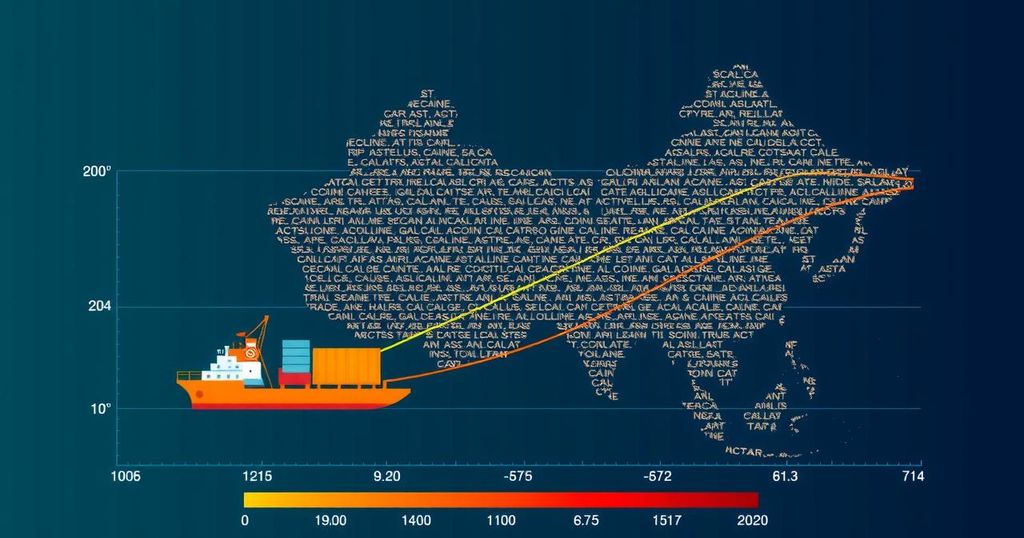As President Trump prepares to take office, economists predict he may impose tariffs on China of around 38% instead of the promised 60%. While this may alleviate some inflation concerns in the U.S., it could lead to a significant downturn in China’s already vulnerable economy. Trump’s nomination of Howard Lutnick as Commerce Secretary could further intensify this trade conflict. The economic uncertainty poses risks for both nations and the global market, as China prepares for potential retaliation against U.S. tariffs.
As Donald Trump embarks on his presidential journey, expectations swirl around his potential tariffs on China. Economists suggest he is unlikely to initiate his term with the aggressive 60% tariffs he promised. Instead, a median estimate of around 38% seems more plausible, acknowledging that higher tariffs could jeopardize the U.S. economy by fuelling inflation. Trump’s earlier term saw tariffs ranging from 7.5% to 25%, and the current economic landscape appears more fragile for China, with economists predicting a reduction of up to 1% in China’s GDP growth due to the anticipated tariffs.
Trump recently indicated plans to nominate Howard Lutnick, a noted proponent of tariffs, as his Commerce Secretary. Lutnick’s focus aligns with Trump’s desire to revitalize U.S. manufacturing. The coming months are crucial as Trump’s administration will enforce existing restrictions aimed at curtailing China’s advances in technology. Meanwhile, economists are wary of how these tariffs will affect the already shaky Chinese economy, which faces a myriad of challenges, including a property slump and rising debts.
Chinese economists are anticipating retaliation from Beijing, emphasizing the country’s commitment to safeguarding its development rights. Xi Jinping has already hinted at the seriousness of this matter, suggesting that any threats to these rights are a direct line crossed in U.S.-China relations. China, simultaneously, is expected to respond with its own stimulus measures to mitigate the impact of U.S. trade policies.
This economic chess game between the U.S. and China is intricate, with each move impacting global trade dynamics. The implications of Trump’s tariffs could reverberate through the world economy, altering the paths of both nations. Economists predict slower growth rates for China, set against a backdrop of tightening inflation, which could pressure the Chinese government into necessary adjustments as they navigate these uncertain waters.
The increasing tension between the U.S. and China, particularly surrounding trade policies and tariffs, has been a focal point since Trump’s presidential campaign. Promises of imposing hefty tariffs on Chinese imports aimed at protecting American jobs and industries were among his main platforms. As economists assess the potential ramifications of these tariffs, they warn of possible inflation within the U.S. and a slowdown in China’s economic growth, complicating the already delicate trading relationship between the two powers. The backdrop of these considerations includes China’s current economic vulnerabilities, which are more pronounced than during Trump’s first term, along with the critical need for a balanced approach to trade relationships.
In summary, Trump’s anticipated trade policies are set to reshape U.S.-China economic ties significantly. While the promised 60% tariff on Chinese imports may be off the table for now, the economists’ consensus leans towards substantial tariffs that could upend trade flows and stifle growth on both sides. The delicate interplay of retaliatory measures and economic strategies ensures that the international landscape remains fraught with uncertainty. As both nations brace for the unfolding scenario, the global economy watches closely, ready to adapt to the potential upheavals.
Original Source: www.asiafinancial.com



